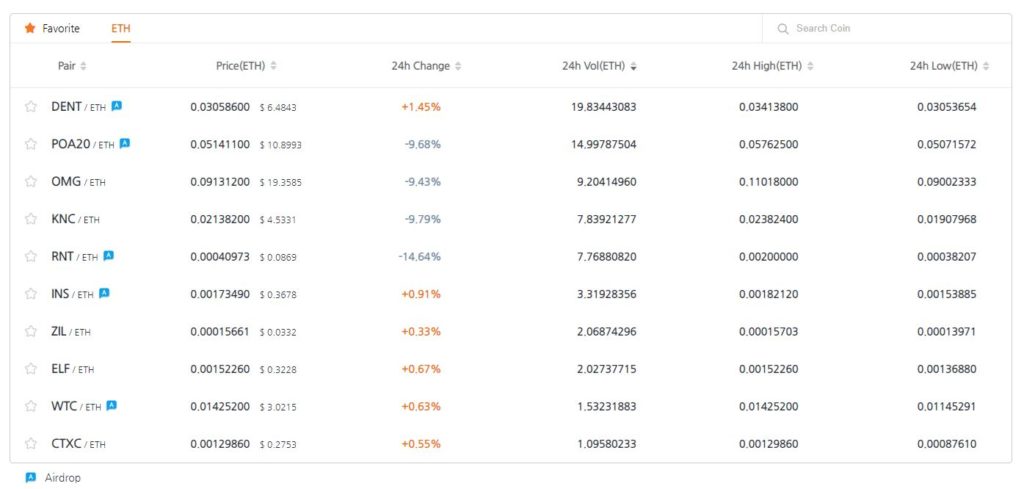
2018-10-8 21:54 |
One of the largest cryptocurrency exchanges by volume has announced its plans to release a decentralized exchange (DEX). The South Korean exchange Bithumb hopes to have its decentralized exchange released by the end of October.
This is one of several such announcements relating to DEXs after taking place this year. The first zero-fee decentralized exchange, StellarX, recently launched. BitFinex has released Ethfinex and has also planned to release EOSfinex. Binance is scheduled to release its own DEX next year and is currently in beta testing.
Partnership for ProblemsSeveral DEXs are up and running, but we have failed to see one gain mass adoption to the same scale as some of the popular centralized exchanges such as Binance, Bitstamp, and Bitfinex.
There are many advantages to decentralized exchanges. One of the key benefits of DEXs is that users are in control of their own private key. In centralized exchanges, all of the user’s funds are pooled together under the control of the exchange. Putting users in control of their own private key enhances security to the end user. Users can also make trades directly to and from their wallets. The other key benefit that users typically get with DEXs is enhanced privacy. DEXs often don’t need to conduct know-your-customer compliance as users are storing their own funds and their trading counterparts are other users.
However, there have been some key challenges that have prevented DEXs from gaining significant adoption. One of the key challenges has been lack of liquidity. Bithumb has partnered up with ONEROOT to provide a solution to this. ONEROOT will provide its R1 Protocol, which is an Ethereum-based protocol that enables all exchanges on the protocol to share order book data and liquidity. This is an attractive feature in theory, but the only other exchange currently using the R1 protocol is ONEROOT’s own DEX, so the extra liquidity provided will be limited until more DEXs use the protocol.
Another key challenge with DEXs has been limitations with the assets. The tradable assets are typically limited to the blockchain that the DEX is built upon. The R1 Protocol is Ethereum based, so DEX assets may also be limited to assets on the Ethereum blockchain. The recently released StellarX provided a solution to this by issuing tethered assets on its DEX. Further details await as to how Bithumb will plan to deal with this.
High Competition Among ExchangesThe exchange business is highly competitive. Bithumb is the largest exchange in South Korea and often represents a significant share of trading volume in Bitcoin. However, with many competitors developing DEXs, there is a risk that Bithumb could lose users if it does not also offer this option to its users. Even if the DEX only offers marginal benefits to users, a decision to not develop a DEX would risk users migrating to other exchanges. This move has been noted to be part of Bithumb’s global expansion plans due to difficulties expanding the domestic business.
Another DEX Announcement as Bithumb Makes Moves for Expansion was originally found on [blokt] - Blockchain, Bitcoin & Cryptocurrency News.
Similar to Notcoin - Blum - Airdrops In 2024
Safe Exchange Coin (SAFEX) на Currencies.ru
|
|

















